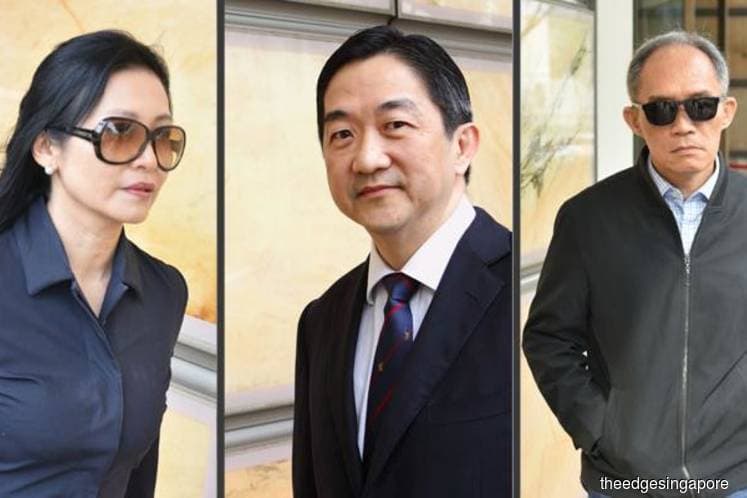
SINGAPORE (May 31): The defence team for John Soh Chee Wen, Quah Su-Ling and Goh Hin Calm — the trio facing trial for the October 2013 penny stock saga — in court today tried to prove that their clients were not responsible for the crash, which wiped out some S$8 billion in market value.
On the second day of the three-day committal hearing, defence counsel N. Sreenivasan suggested that it could have been the forced selling of shares in the three companies — Blumont Group, LionGold Corp and Asiasons Capital, which is now known as Attilan Group — that had caused the collapse.
A total of 67 prosecution witnesses will be called during the committal hearing. Reporting on the proceedings was initially restricted for the first day on May 30. The restrictions were subsequently lifted for today and tomorrow, and also backdated for the first day.
In court today, Sreenivasan asked if Goldman Sachs has so-called "proprietary traders" who trade with the firm's own money in order to make a profit for itself. Wang Xue Zhi, Goldman's co-head for credit risk management and advisory, clarified that the term used is "market facilitators" instead.
However, the Hong Kong-based executive agreed that the positions of these market facilitators may be inimical to the position of Goldman's own clients.
Quah, one of the three accused, was slapped with a margin call by Goldman on the morning of Oct 2, 2013. In a letter of demand shown in court, Quah, who is facing 178 charges, was asked to pay up S$36.6 million and US$19.3 million by 1.30 pm that very day.
Shares of Asiasons, Blumont and LionGold went on to crash the following day.
Shares of these companies, which were held as collateral, were then sold as Quah was unable to meet the payment in time.
However, Wang hesitated to agree that the forced selling by Goldman had caused the share prices to collapse.
"Do you agree that it will exert downward pressure on the share price?" asked Sreenivasan, who is representing Soh, the alleged mastermind of the saga.
"Any sale, by default, will," said Wang.
The defence counsel pressed on, and continued to ask if forced selling would exert greater downward pressure on the share price than if in the case natural selling and buying. "Let's not play games. Will there be greater pressure, yes or no?" asked Sreenivasan.
"I can't say if [it's] greater or not," Wang replied.
"Did Goldman Sachs contribute to the drop in share price?" Sreenivasan pressed.
"I think it did," Wang finally acknowledged.
Besides Wang, representatives from several other financial institutions such as Saxo Bank and Interactive Brokers were questioned.
The witnesses included Bernette Colleen Meyer of UBS, from which Quah Su Ling racked up trading losses of S$7.7 million. Several accounts with UBS, held in the name of other entities such as Neptune Capital Group and Whitefield Management, lost S$50.6 million and S$36 million, respectively.
Individuals such as former DMG brokers Leroy Lau Chee Heong and Gabriel Gan Tze Wee, top Phillips Securities broker Husein @ Tjoa Sang Hi, and former LionGold executive Peter Chen Hing Woon have also taken the stand.
On Friday, a key witness to take the stand is Ken Tai Chee Ming, a trader who is now with Algo Capital.
Click on this link to go to the original story on theedgesingapore.com